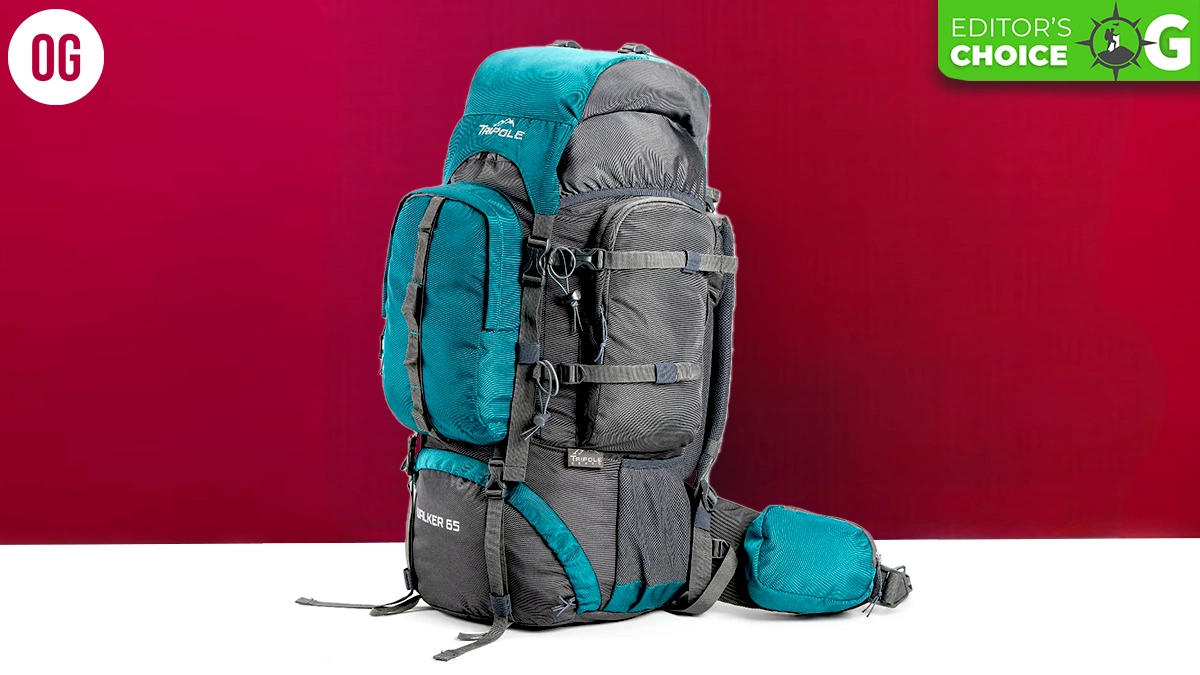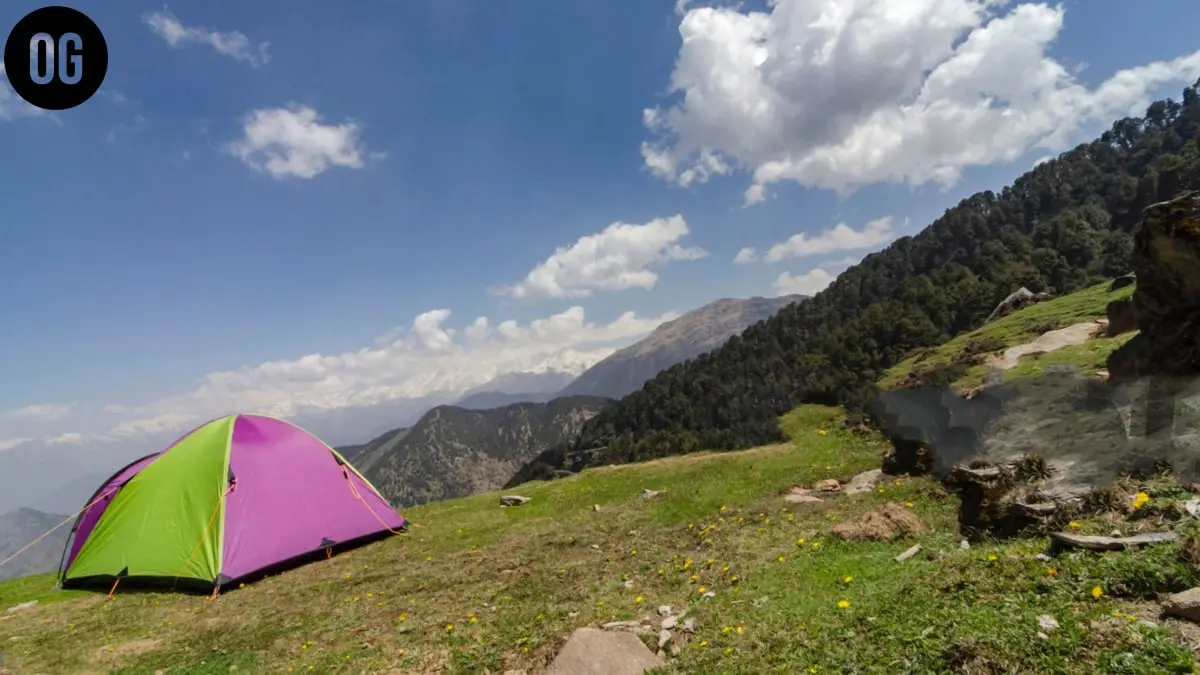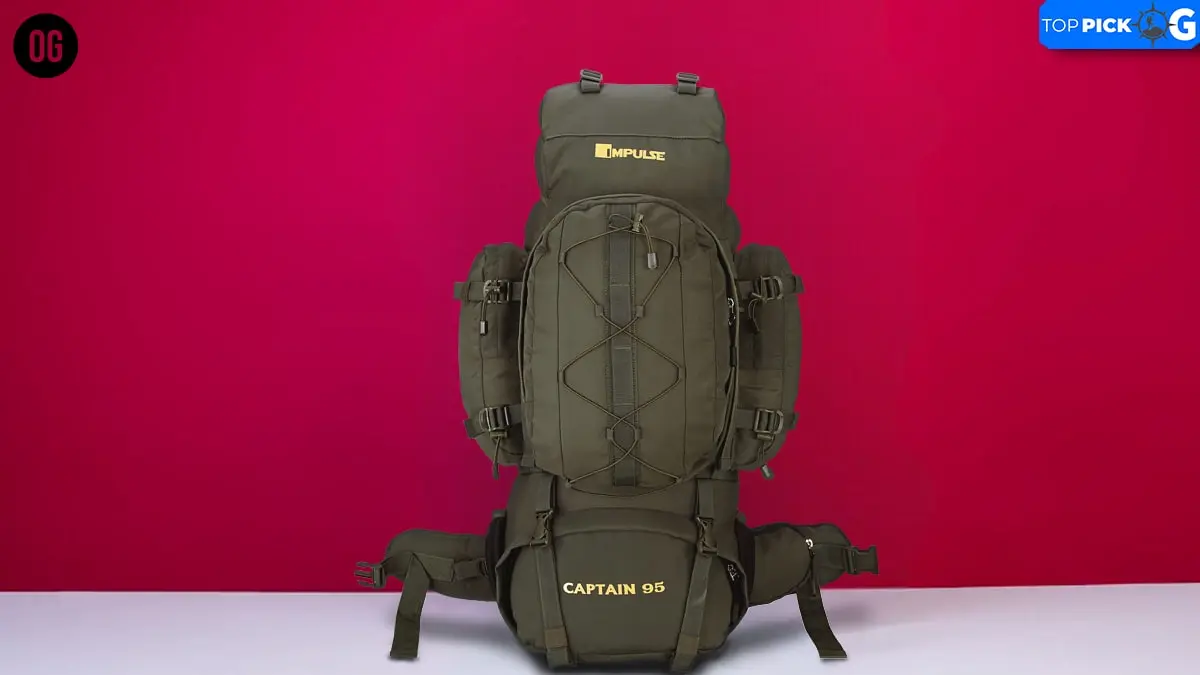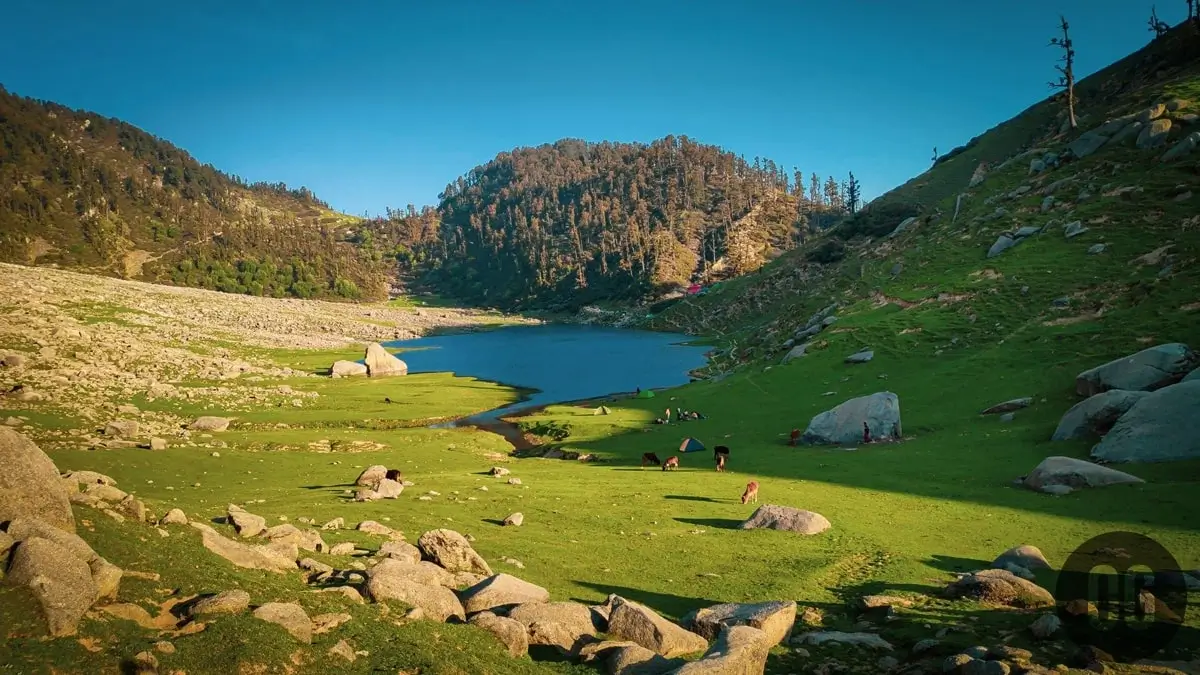Single-Wall vs. Double-Wall Tents: 4 Steps Choosing the Right Shelter for Your Adventure

As you venture into the great outdoors, your shelter selection can significantly impact the quality of your adventure, turning it into a satisfying or challenging experience. This choice revolves around single-wall vs. double-wall Tents, each with its advantages and disadvantages.
Tents are essential pieces of gear, so understanding the differences between single-wall and double-wall canopies is consummate to having an indelible out-of-door adventure experience.
Table of Contents
Single-wall canopies give convenience and weight savings, while double-walled ones prioritize comfort and versatility.
When making an informed choice between them, be sure to consider weather conditions, duration of trip, particular preferences as well as any special considerations similar to a storehouse.
We’ll examine their structures, pros, cons, and practical use in real-world outdoor scenarios. Join us on our quest to find the perfect shelter, comparing Single-Wall vs. Double-Wall Tents.
Related: 7 Best Tents For Camping And Backpacking
Single Wall Tents

Single-wall tents are the dream of minimalists and backpackers alike. Offering both simplicity and efficiency in terms of weight saving and setup time outdoors, single-wall shelters make an excellent addition to anyone who values weight savings or quick setup times.
We will explore this tent type further here in this section, detailing its features, advantages, and considerations.
Definition and Construction for single-wall tents
Single-wall tents feature an innovative design conforming to one layer of fabric that serves both as shelter and rainfly, streamlining their construction by barring the need for separate rainflies that add weight and complexity to setup.
Constructed using water-resistant materials that keep you dry when wet weather comes knocking.
Advantages of Single Wall Tents
Lightweight Design: Single-wall tents are known for their featherlight designs, making long journeys more manageable for backpackers and thru-walkers.
Backpackers appreciate this reduced burden on their tails commodity backpackers and thru-walkers appreciate it immensely!
Setup Is Easy: With its straightforward design and few components, assembling a single-wall tent is quick and simple – even in adverse weather conditions!
Ventilation Options: Single-wall tents often include strategically placed mesh windows and vents for adequate airflow to reduce condensation, making them suitable for warmer climates or muggy nights.
The drawbacks of single-wall tents
Condensation Concerns: While ventilation results help alleviate condensation issues, single-wall tents may be more prone to humidity buildup compared to their double-walled counterparts in cold or humid conditions. This could pose an issue.
Single Wall Tents with Limited Interior Space: Due to their sleek designs, single-wall tents typically provide less interior space.
If you appreciate a roomy atmosphere for gear storage or prefer having more living areas in your tents, single-wall designs might feel limiting in comparison.
Potential Durability Issues: As single-wall tents are lightweight designs, their durability may diminish over time if exposed to rough conditions or heavy use.
Real World Applications
Single wall tents excel in specific situations:
Ultralight Backpacking: For weight-conscience backpackers and thru-hikers who wish to trim down on gear weight, single-wall tents may be the ideal choice.
Fair Weather Adventures: For use in milder climates where condensation is less of an issue, single-wall tents offer simple and cost-effective shelter.
Quick Getaways: For quick getaways on the fly, single-wall designs offer unmatched convenience.
As previously discussed, single-wall tents offer lightweight and minimalist shelter for outdoor adventures.
Their simplicity and efficiency make them suitable for specific situations; however, it is essential to consider potential drawbacks, particularly if weather conditions vary widely or extra space is required.
By making an informed choice with your single-wall tent purchase, your adventure companions will remain safe on an endless adventure journey!
Double Wall Tents
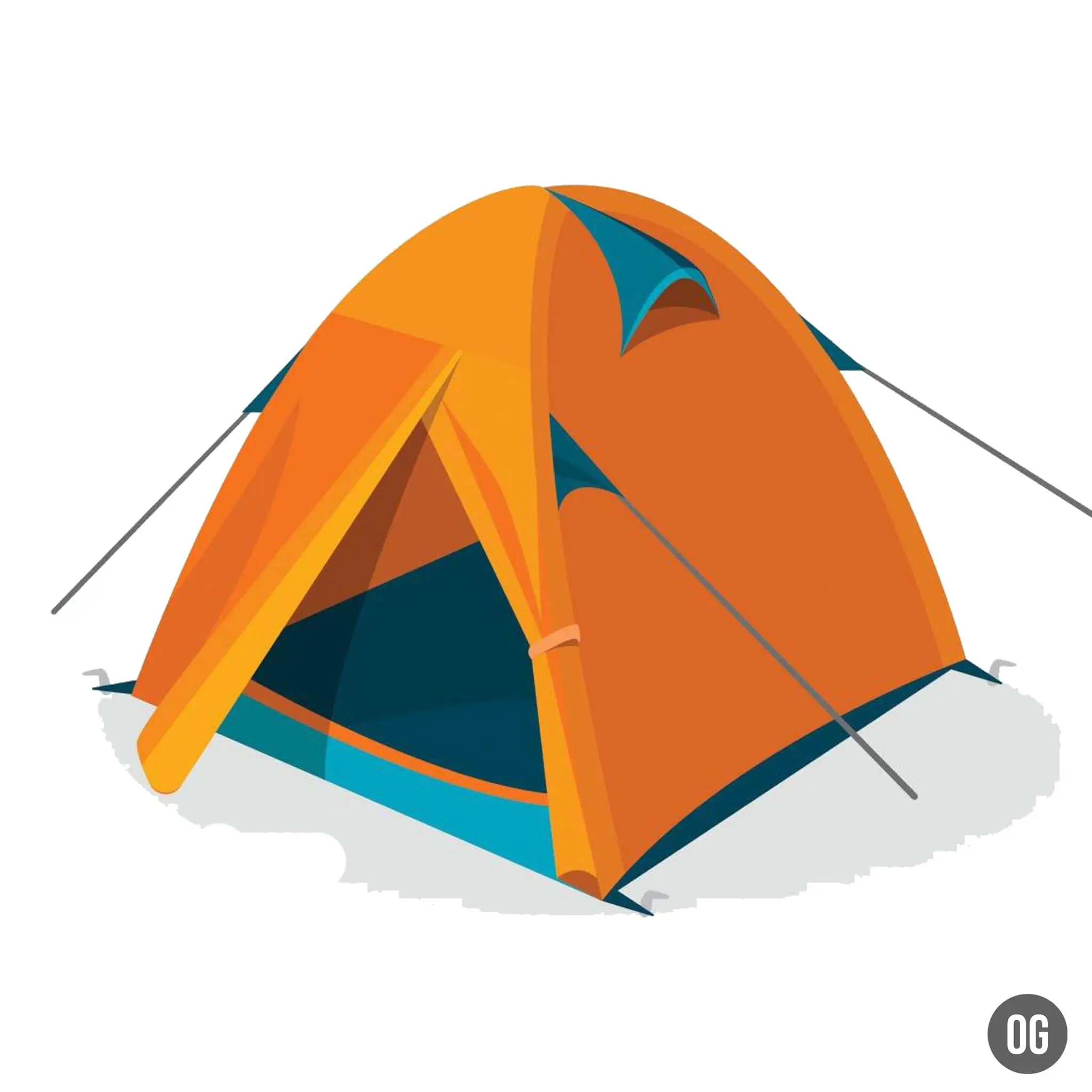
Double-wall tents offer outdoor enthusiasts maximum versatility and comfort, thanks to their design which prioritizes moisture management, ventilation, and adaptability – making them a popular choice for camping and backpacking adventures alike.
In this section, we’ll dive deeper into double-wall tents by exploring their features, advantages, and considerations.
Definition and Construction
A double-wall tent features two distinct layers – an inner tent and an outer rainfly – designed to serve several important purposes.
For instance, its inner tent typically made from breathable mesh fabric can provide shelter and comfort; its outer rainfly offers protection from rain and environmental elements, providing more efficient moisture management and condensation control.
Advantages of Double Wall Tents
Excellent Ventilation: Double wall tents feature mesh inner tents which offer outstanding ventilation, helping prevent condensation build-up in various weather conditions and making them an excellent choice for camping trips.
This feature makes double-wall tents an excellent choice for camping adventures of all kinds.
Comfort in Diverse Conditions: Double wall tents are versatile enough to adapt to different climates and seasons, making them a reliable option for year-round camping trips.
Interior and Livable Space: Due to their double-walled construction, double-wall tents typically provide more interior living space and living area for your camping experience.
Many also come equipped with vestibules for storage purposes to maximize available space even further.
Reduced Condensation: Double-wall tents make condensation less of an issue since body heat and breath moisture are less likely to build up inside them, leading to a drier, more comfortable night’s rest.
Disadvantages of Double Wall Tents
Heavier Than Single Wall Tents: Given their two-layer construction and extra components, double wall tents typically tend to be heavier.
Although not ideal for ultralight backpacking trips, their benefits often outweigh weight considerations for many campers.
Setup Can Be More Complex: Installing a double wall tent may involve more steps compared to single wall tents; both components must be assembled individually before joining together as one structure. However, with practice, this process becomes simpler.
Real-World Applications
Double-wall tents make an impactful statement, offering comfort to campers throughout all four seasons of camping.
Multi-Season Camping: From hot summer camping trips to cozy winter excursions, double-wall tents provide the adaptability needed to make camping an enjoyable experience.
Longer Trips: For extended camping excursions where comfort and livable space are of utmost importance, double-wall tents offer enough room to make long stays comfortable and livable.
Moist or Humid Environments: Double wall tents excel at keeping users dry and comfortable in areas prone to rain or high humidity thanks to their moisture management features, helping keep raindrops off their faces while remaining protected against humidity levels.
Double-wall tents are an excellent choice for campers and backpackers looking for versatility, comfort, and reliability in an outdoor shelter.
While not the lightest option available on the market, their superior moisture control, ventilation systems, spacious interiors, and long lifespan make them an excellent investment for adventurers looking to experience nature in comfort and style.
Factors to Consider When Choosing Between Single Wall and Double Wall Tents
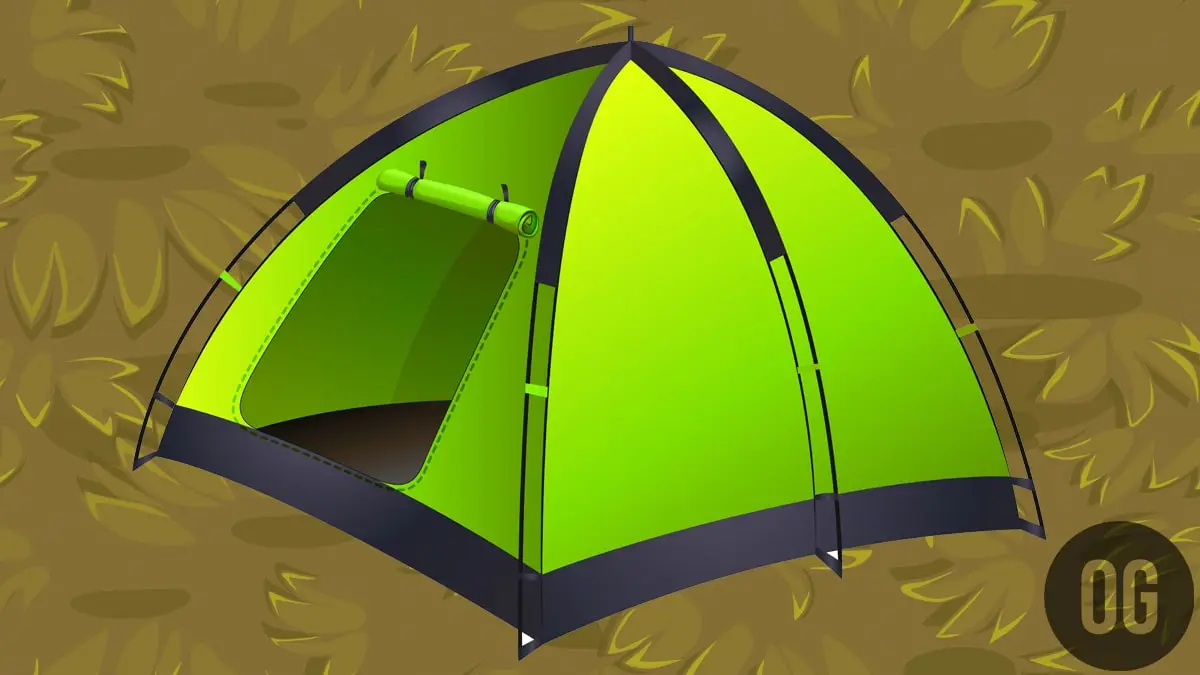
Choosing the ideal tent for your outdoor adventure is an important decision that can significantly affect your comfort and safety in the wilderness.
From single-wall tents to double-walled, several important considerations should help inform your decision-making process when making this important choice. Here are a few factors to keep in mind to help guide your selection process:
Weather Conditions
One of the key considerations when purchasing a tent is your expected camping destination’s climate conditions. Each type of tent excels under certain circumstances:
Single Wall Tents: These may be best for fair weather conditions or when looking to reduce weight.
While they provide decent protection in moderate rainfall or harsh winter environments, these tents may not offer sufficient cover in heavy downpours or winter conditions.
Double Wall Tents: For camping trips that anticipate variable weather, rain, or colder temperatures, double wall tents offer better insulation and moisture control – they’re the go-to choice when three-season camping.
Trip Duration and Purpose
Short Trips: When taking short getaways or overnight excursions, single-wall tents with their lightweight designs and simple setup may provide enough shelter.
Longer Expeditions: If your adventure will last several days or more, double-wall tents might offer additional comfort and space that are worth their slightly heavier weight trade-off.
Weight and Portability
Ultralight backpacking: For ultralight backpacking or thru-hiking, single-wall tents offer weight reduction while remaining stylish and simple in design.
Balance Comfort and Weight: For campers who prioritize comfort while not minding carrying more weight, double-wall tents offer more spacious shelter options with versatile ventilation requirements.
Ventilation
Single Wall Tents: Single Wall Tents may offer ventilation options like mesh windows and vents, yet are more likely to collect condensation under humid or cold conditions.
Double Wall Tents: Double wall tents have mesh inner tents which provide excellent ventilation, reducing condensation and making them suitable for various climates. Furthermore, their durability makes them suitable for many different occasions.
Consider durability
Single Wall Tents: Due to their lightweight design, single wall tents may not be as long-wearing in rough or extended-use situations.
Double Wall Tents: Due to their two-layer construction, double wall tents tend to be more durable and cost-effective.
Their two layers help ensure greater strength and longer-term use. A budget double-wall tent should last around 10-20 years with proper care.
Budget considerations
Single Wall Tents: Single Wall Tents may be more budget-friendly due to their simplicity and limited materials used.
Double Wall Tents: Due to the extra features and materials they utilize, double-walled tents may be more expensive, yet offer greater versatility.
By considering these factors and aligning your tent selection to your unique needs and conditions, you can ensure a more pleasurable and satisfying outdoor experience.
There’s no such thing as one-size-fits-all solutions; what might work for one adventure may not suit another.
Make an informed choice so your chosen shelter will remain reliable as you explore nature’s splendor!
Real-world applications: Single-Wall vs. Double-Wall Tents
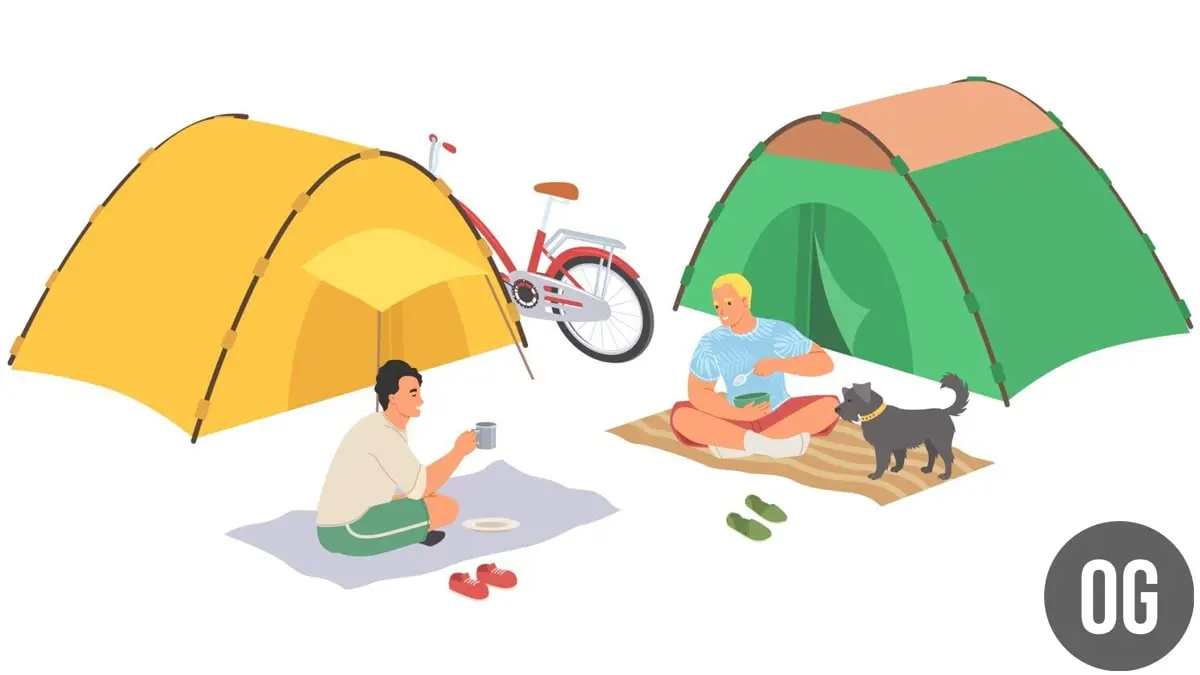
Your decision between single-wall and double-wall tents should depend on your intended outdoor activity and environmental conditions, as well as understanding their real-world applications to make an informed decision for your next adventure. Here is how each type excels in different situations:
Single Wall Tents:
Ultralight Backpacking: Single wall types of tents are the go-to choice for ultralight backpackers and thru-hikers looking to minimize pack weight on long-distance treks.
Their simplicity and minimal components make them an excellent option when trying to achieve minimal pack weight.
Quick Getaways: For last-minute camping trips or quick setup after a day of hiking, single-wall tents offer quick getaway solutions. Their straightforward design and simple setup make them an excellent solution.
Fair Weather Adventures: When traveling in mild, dry conditions where condensation is less of an issue, single-wall tents provide an easy shelter solution. Their simple setup keeps you protected without unnecessary complexity.
Double Wall Tents:
Multi-Season Camping: Double wall tents are adaptable, making them the ideal solution for multi-season camping.
No matter what conditions you find yourself camping under – be it summer heat, autumn nights, or even light winter weather conditions – double wall tents provide the comfort and insulation needed.
Longer Trips: For camping excursions that go beyond one weekend, double-wall tents provide extra space and comfort to enhance your camping experience. Their extra roominess will come in handy during longer stays.
Moist or Humid Environments: When dealing with rain, high humidity, or unpredictable weather, double-wall tents make an excellent choice.
Their moisture management features and capacity to prevent condensation make them an effective way of keeping things under control.
Family Camping: Double-wall tents provide enough room for comfortable family or group camping trips when space is at a premium, including vestibules for gear storage, further increasing their utility.
Backcountry Base Camping: When setting up a base camp for mountaineering, climbing, or other backcountry activities in challenging environments, double wall tents offer durability and versatility that make them an excellent option.
Bug-Prone Areas: When camping in locations prone to insects such as marshy areas or during insect-heavy seasons, such as mosquito-ridden regions or fields, double wall tents with mesh inner tents offer essential protection from creepy crawlies while still allowing airflow.
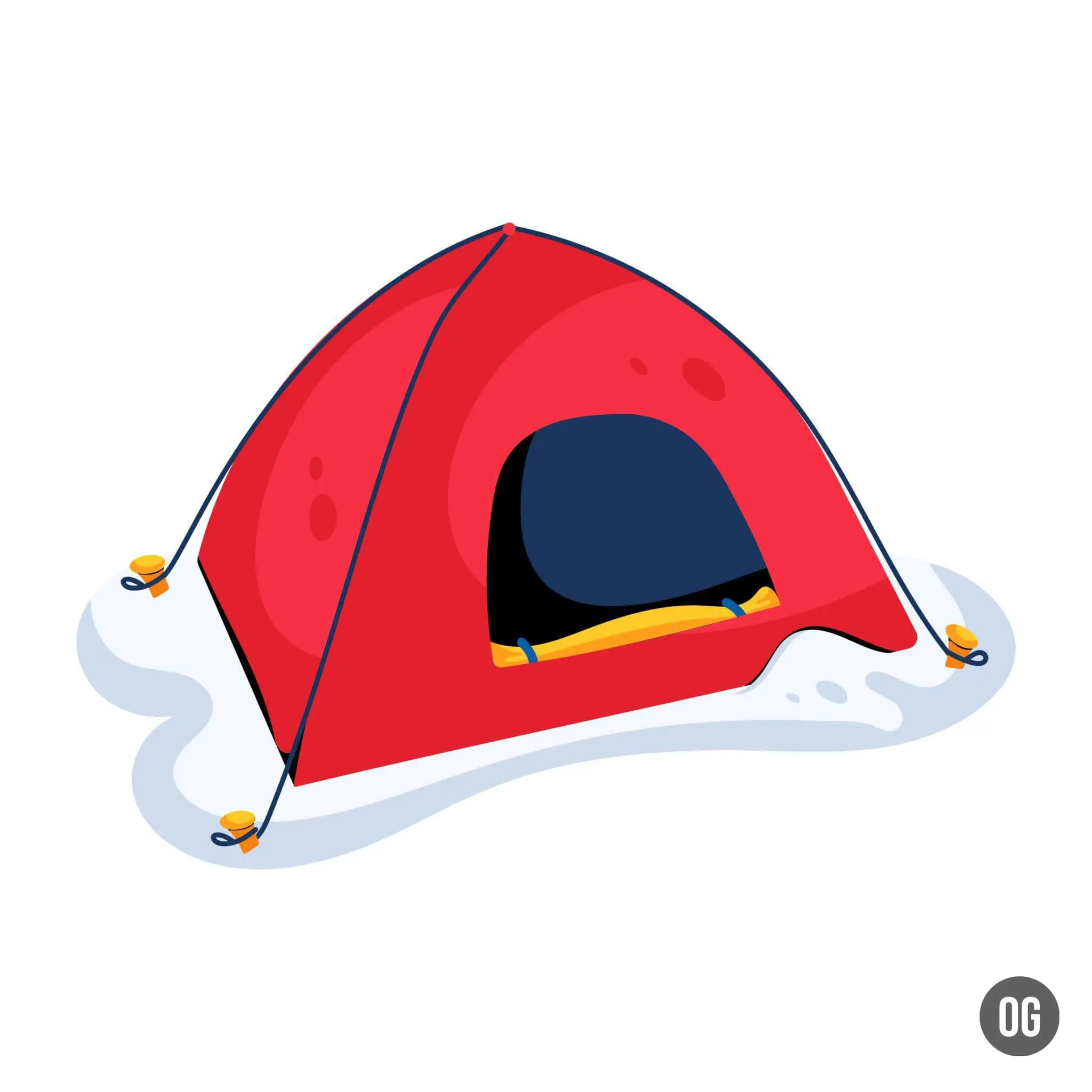
FAQs: Single Wall vs. Double Wall Tents
Is a single-wall tent better than a double-wall tent?
A top-notch single-wall tent provides warmth in snowy conditions and keeps you dry during sporadic downfall, ideal for dry surroundings. still, if the weather is changeable, a double-wall tent may be a suitable choice for your requirements.
How much warmer is a double-wall tent?
In any case, I estimate that within a fully sealed, compact, double-walled tent, body heat can elevate temperatures by over 15- 20 degrees Fahrenheit. This redundant warmth allows for a fairly dry and comfortable interior indeed when the rainfly accumulates significant frost at 20 degrees Fahrenheit.
Does a tent need 2 layers?
The external subcaste of the tent security it from environmental fundamentals like wind and water with its rugged material. Again, the inner subcaste promotes breathability, enhances interior ventilation, and minimizes condensation buildup.
Which tent is best for winter double wall or single wall?
For winter camping, a double-wall tent is generally a better choice due to its superior insulation and condensation control. The separate inner and external layers help keep warmth and humidity out, furnishing a more comfortable and safer terrain in cold conditions.
Which tent is cooler single wall or double wall?
Single-wall tents tend to be cooler in warm weather compared to double-wall tents. Single-wall tents have smaller layers and better airflow, which can help dissipate heat and keep the interior cooler in hot conditions. still, the specific cooling effect can also depend on factors like ventilation options and stuff used in the tent’s construction.
Which type of tent is good for rain camping?
For camping in stormy conditions, a double-wall tent is generally the better choice. Double-wall tents have a separate rainfly that provides redundant protection against rain and helps avert humidity from entering the inner tent. This design offers better waterproofing and reduced condensation compared to single-wall tents, making it a more suitable option for rain camping.
Conclusion
Here we conclude our article on single-wall vs. double-wall tents. Outdoor adventures require tent selection as a strategic decision, not simply personal preference.
Single-wall tents, with their lightweight simplicity, are ideal for weight-conscious adventurers embarking on short, fair-weather trips.
On the other hand, double-walled tents provide greater versatility and comfort, making them well-suited for multi-season camping, longer expeditions, and unpredictable weather conditions, thereby addressing the choice between single-wall vs. double-wall tents.
At its core, the ideal tent for you depends on meeting both your specific needs and those of any outdoor adventure.
Consider all factors involved when making this choice; make an informed choice as this tent serves not just as shelter but as part of an unforgettable journey!
Be sure to provide your valuable insights about our article on single-wall vs. double-wall tents in the comment section below.


